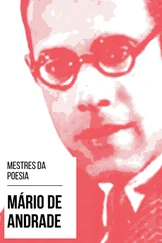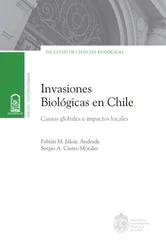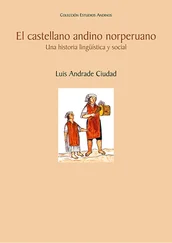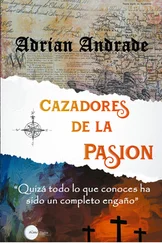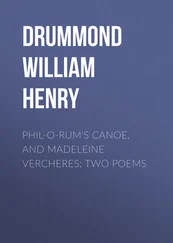passeias brandamente
como ao que vai morrer se estende a vista
de espaços luminosos, intocáveis:
em mim o que resiste são teus poros.
Corto o frio da folha. Sou teu frio.
E sou meu próprio frio que me fecho
longe do amor desabitado e líquido,
amor em que me amaram, me feriram
sete vezes por dia em sete dias
de sete vidas de ouro,
amor, fonte de eterno frio,
minha pena deserta, ao fim de março,
amor, quem contaria?
E já não sei se é jogo, ou se poesia.
I’ve earned (I’ve lost) my day.
And that cold thing called night
falls, and the cold blends with cold
to make fog, in a breath.
And I question myself and breathe that same self
in the parting of this day that was a thousand
for me who expected
big, explosive suns. I felt rich
with this day, and there it quietly went,
behind the cold ridge.
Did I lose my soul in the prime of day, or had I lost
that vague treasure in a prior age?
But why wonder when, if I was lost
before birth
and in birth I woke up to a life of losing
fruits I never had and would never harvest?
I spent my day. And lost myself.
Out of so many losses a clear path
was bound to open
from me to me, a cold headstone.
The trees outside reflect on their treeness.
In me the winter’s warm, since I cradle it,
and it melts in me
this crying lump of salt.
Oh, enough laments and verses uttered
to the ear of a faceless being without justice,
to the ear of a wall,
to the smooth, dripping ear
of a pool that distractedly weaves
its watery rug, indifferent to time.
I’m going to retreat
to the strongbox of ghosts, where news
of the lost can’t reach me nor catch the attention
of watchful love’s patrolling eyes.
Don’t look for me: I’ve lost myself
as some men kill themselves, and eels
retreat to their cold-water dens.
Day:
a mirror of what I didn’t live,
and yet the life the gods promised
was so vibrant; and it is so austere
amid deserted chapels
where a baroque soul seeking comfort
discerns, in the coldness, only more coldness.
My God, essence extraneous
to the vessel or useless form I feel is me,
since I, in my essence, am not fit
to inhabit your lofty architecture;
my God and my conflict,
I don’t plead my cause or defy
your ineffable claws. I witness
my slow dissolution, resigned
to becoming open country treaded on
by serfs, oxen, and soldiers in the service
of darkness, and by a child
the new era promises but denies me.
Earth I bow to, under the cold
of my brow growing longer in time,
earth I feel closer to, the more I inhale
the ancient scent of my relatives in you,
earth that’s my earth, I’m yours; and indulgently
you stroll your captive
even as men doomed to die are given
to see luminous, untouchable expanses:
what in me still resists are your pores.
I cut the leaf’s coldness. I am your coldness.
And I’m my own cold closing in on me,
far from the liquid love I fled,
the love of others loving me, wounding me,
seven times a day seven days out of seven
in seven golden lives,
love, fountain of eternal cold,
my pain and pen abandoned, at the end of March,
love, who’d tell the story?
And I don’t know if it’s a game, or poetry.
A VIDA PASSADA A LIMPO / FAIR COPY OF LIFE (1959)
Não cantarei amores que não tenho,
e, quando tive, nunca celebrei.
Não cantarei o riso que não rira
e que, se risse, ofertaria a pobres.
Minha matéria é o nada.
Jamais ousei cantar algo de vida:
se o canto sai da boca ensimesmada,
é porque a brisa o trouxe, e o leva a brisa,
nem sabe a planta o vento que a visita.
Ou sabe? Algo de nós acaso se transmite,
mas tão disperso, e vago, tão estranho,
que, se regressa a mim que o apascentava,
o ouro suposto é nele cobre e estanho,
estanho e cobre,
e o que não é maleável deixa de ser nobre,
nem era amor aquilo que se amava.
Nem era dor aquilo que doía;
ou dói, agora, quando já se foi?
Que dor se sabe dor, e não se extingue?
(Não cantarei o mar: que ele se vingue
de meu silêncio, nesta concha.)
Que sentimento vive, e já prospera
cavando em nós a terra necessária
para se sepultar à moda austera
de quem vive sua morte?
Não cantarei o morto: é o próprio canto.
E já não sei do espanto,
da úmida assombração que vem do norte
e vai do sul, e, quatro, aos quatro ventos,
ajusta em mim seu terno de lamentos.
Não canto, pois não sei, e toda sílaba
acaso reunida
a sua irmã, em serpes irritadas vejo as duas.
Amador de serpentes, minha vida
passarei, sobre a relva debruçado,
a ver a linha curva que se estende,
ou se contrai e atrai, além da pobre
área de luz de nossa geometria.
Estanho, estanho e cobre,
tais meus pecados, quanto mais fugi
do que enfim capturei, não mais visando
aos alvos imortais.
Ó descobrimento retardado
pela força de ver.
Ó encontro de mim, no meu silêncio,
configurado, repleto, numa casta
expressão de temor que se despede.
O golfo mais dourado me circunda
com apenas cerrar-se uma janela.
E já não brinco a luz. E dou notícia
estrita do que dorme,
sob placa de estanho, sonho informe,
um lembrar de raízes, ainda menos
um calar de serenos
desidratados, sublimes ossuários
sem ossos;
a morte sem os mortos; a perfeita
anulação do tempo em tempos vários,
essa nudez, enfim, além dos corpos,
a modelar campinas no vazio
da alma, que é apenas alma, e se dissolve.
I won’t sing of loves that I don’t have
and didn’t celebrate when I had them.
I won’t sing of laughs never laughed
and which, if laughed, I’d give to the poor.
My subject matter is nothingness.
I’ve never dared sing about things from life.
If a song comes out of my self-centered mouth,
the breeze brought it, and will take it away,
nor does the plant know what wind shakes it.
Or does it? Something of us is imparted,
but it’s so hazy, scattered, and strange
that if it comes back to me, who launched it,
its supposed gold is tin and copper,
copper and tin,
and what’s not malleable isn’t noble,
and what was loving wasn’t love.
And what was hurting wasn’t pain,
or does it still hurt, after it’s gone?
What pain, knowing it’s pain, doesn’t cease?
(I won’t sing of the sea; let it avenge
my silence through this seashell.)
What feeling lives and already thrives
by digging in us enough ground
to bury itself with the grim resolve
of someone living his own death?
I won’t sing that death: it’s the selfsame song.
And I’ve quit caring about fear,
about the wet terror that comes from the north,
rises out of the south, and four-foldedly clads me
unto the four winds with its three-piece suit of sorrows.
I don’t sing, for I don’t know how, and when a syllable
happens to join up
with its sister, I see them as two vexed serpents.
A lover of snakes, I’ll spend my life
bent over the grass, watching
the wavy line that lengthens, then
contracts and attracts, beyond the meager
Читать дальше




